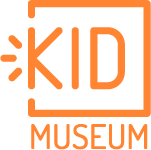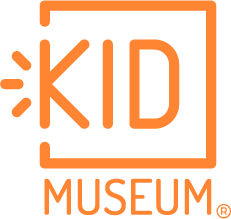Kids, Education, and the Business of "Making"
Investing time, money, and an afternoon to help build the future of work
by Paul Roehrig
If you’re a little lucky – and very competent – you may be fortunate enough to have a job. This is, by and large, a good thing because work – doing something that adds value in return for fair compensation – is one of the organizing principles of our society. This has been so since we started collaborating in ancient veldts, swamps, and forests.
In our new book, What To Do When Machines Do Everything, we share our research findings, insights, and recommendations about how business leaders must act to win in the digital economy. But one important point that we only barely touch on in the book is how businesses can – and must – accept a portion of the responsibility for longer term education of children and young adults to help prepare them for our new economy. Schools are certainly adapting, but many simply can’t keep up with the shift.

New business rules are in effect.
All the available evidence points to a period of intense disruption. But what if you decide, after careful consideration, “Nope. I’m pretty sure this whole ‘digital’ thing is a just the latest fad. I’m going to wait for it to all blow over.” It’s an option, but get ready to join the ranks of the underemployed. You won’t be lonely though because you’ll be seated next to ranks of former bank tellers (disrupted by the ATM), toll-booth operators (ticket machines), video clerks (seen a Blockbuster lately?), film manufacturers (heard of Kodak?), and so on. Even if you’re a C-suite occupant, you’ll still have a full table of new friends from Ford, GE, Uber, Yahoo, BlackBerry and others who have not met digital economy expectations. Careers, companies, and even entire sectors not playing by the new rules have already been naturally selected out, just as Darwin would have predicted.
We’re all in this for the long haul.
Even the most numbers-driven accountants recognize that focusing exclusively on next quarter returns isn’t a sound business strategy. Boards, financial analysts, investors, and switched on executives in every industry appreciate that being strategically nearsighted is a real risk. Ignoring the workforce of the future is not only the wrong thing to do ethically, it’s also sure-fire tell that leadership isn’t thinking or acting with long-term performance in mind.
Capability combats fear
We already have a plethora of unfilled positions that require STEM skills, and some researchers are calling for an entirely new set of skills for future employment This is obviously causing a lot of anxiety for those concerned about the future. The antidote to this is to take steps to build the needed capabilities for the future. What are those? In addition to STEM skills to build the new machines, we need to double down on the activities where humans have – and will continue to have – an advantage over silicon (e.g., collaborative problem-solving, creativity, abstract thinking, adapting to changing conditions, balancing a work life with a personal life and so on). The work ahead won’t so much be about “beating the bots” as about being better humans in the digital economy. This requires confidence in the ability to adapt to new challenges (which is what real “makers” learn to do).
It’s for these reasons (and others) that I will be participating in a session at the upcoming KIDfest 2017 in Silver Spring, Maryland. Now, I am not a tinker, maker, or gearhead by any stretch. And yet I think celebrating and nurturing “making” is perhaps one of the most important things we — individuals, non-profits, corporations — can do to strengthen our society for the long term.
I’ll be running an interactive session on how and why it makes good business sense for leaders to pick up the baton and get involved with supporting maker activities for reasons beyond goodwill and marketing. It’s sure to be a lively debate and hopefully a bit of fun, so I hope you can join the session as well as meet urban farmers, gamers, bio-tech gurus, cyber-security heroes, coders, designers, and engineers as we work together to invent the future.
Paul is a co-founder and Chief Strategy Officer of Cognizant Digital Business. He is the former Global Managing Director of the Center for The Future of Work at Cognizant. He is also – along with Malcolm Frank and Ben Pring – a co-author of What To Do When Machines Do Everything: How to Get Ahead in a World of AI, Algorithms, Bots, and Big Data and Code Halos: How the Digital Lives of People, Things, and Organizations are Changing the Rules of Business.

